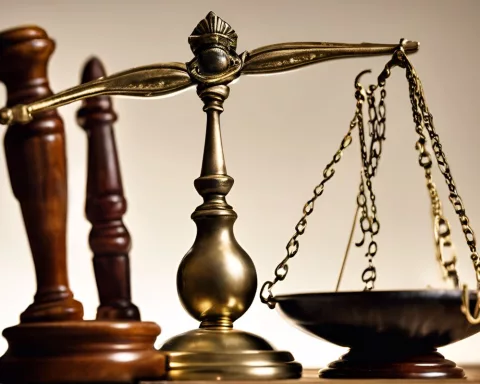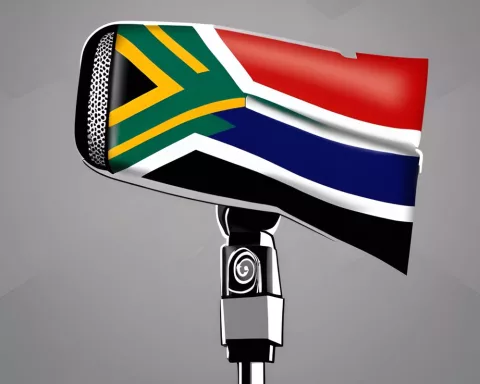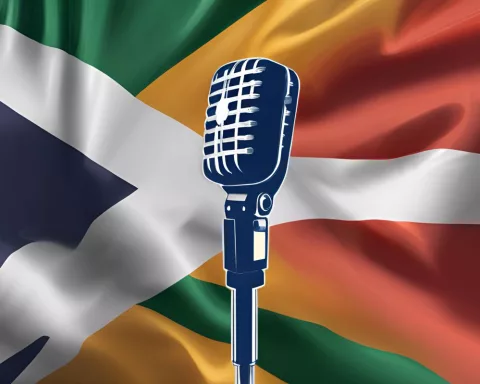South Africa’s Parliament is standing by its decision to dismiss Judges John Hlophe and Nkola Motata, arguing that the current laws provide ample basis to proceed with their removal. The Parliament maintains that the Judicial Services Commission is the suitable body to make the necessary findings and that it is not within its jurisdiction to duplicate their work. The Parliament’s position serves as a reminder that democracy is a continuous process and maintaining the balance between the three branches of government is crucial.
South Africa’s Parliament argues that the current laws provide ample basis to proceed with the dismissal of Judges John Hlophe and Nkola Motata. The Parliament maintains that it does not lie within its jurisdiction to duplicate the work of the Judicial Services Commission, which is the suitable body to make the necessary findings. The Parliament’s position serves as a reminder that democracy is a continuous process and maintaining the equilibrium between the three branches of government is crucial.
A Stance That Resonates
South Africa’s parliamentary system has taken a stand that is causing stir in the judiciary. The issue at hand involves the potential dismissal of Judges John Hlophe and Nkola Motata. Recently, the Parliament made its case in the Western Cape High Court, arguing that the current laws are sufficient to continue the proceedings against these judges.
On 13th February, Judge Hlophe launched an urgent plea to the High Court, requesting a delay on the imminent vote for his dismissal, until his direct access to the Constitutional Court application is decided upon. Judge Hlophe’s argument rests on the belief that the National Assembly has not implemented the necessary rules for the dismissal of judges as outlined in Section 177 of the Constitution. He claims that this absence of rules breaches the legal and fair process required by the Constitution under Section 165. However, Parliament strongly rebuffs this claim, interpreting it as an effort to compromise the constitutional separation of powers and infringe upon judicial independence.
The Parliament’s Counter Argument
The Parliament argues that, far from being insufficient, the current general rules and practices of the National Assembly provide ample basis to proceed with the portfolio committee’s recommendation to dismiss the Judges. This argument is in alignment with its constitutional mandate under section 177(1)(b).
Additionally, the Parliament maintains that it does not lie within its constitutional or statutory jurisdiction to duplicate the work of the Judicial Services Commission (JSC) by conducting another investigation into the conduct of Western Cape Judge President, Judge John Hlophe. The JSC, dominated by lawyers with the required expertise, is seen as the suitable body to make the necessary findings under Section 177(1)(a) of the Constitution. This standpoint was confirmed in the 2022 judgement of Hlophe v JSC and Others, where Judge Hlophe’s request for an investigation duplication was rejected.
The Implications of the Parliament’s Stand
The Parliament interprets Judge Hlophe’s appeal as an effort to obscure the separation of powers and modify the procedure into an appeal or review function. This would give the National Assembly the ability to override the JSC’s findings. The Parliament vehemently opposes this approach, as it diminishes the JSC’s central role and constitutional significance.
Both Judges Hlophe and Motata have been adjudged guilty of gross misconduct by the JSC, with Judge Hlophe’s case tracing back to 2008. He was charged by Constitutional Court Justices of trying to influence their judgement in the Thint/Zuma matters involving former President Jacob Zuma. Similarly, Retired Judge Motata was found guilty of drunk driving in 2009.
The Future of the Judicial Officers
The National Assembly has planned a meeting for 21st February 2024 to assess the report of the Portfolio Committee on Justice and Correctional Services and to decide on the removal of the Judges from the registry of judicial officers.
The Parliament’s position and actions serve as a reminder that democracy is not a single event but a continuous process. It calls upon all South Africans to participate in this process by expressing their opinions in Parliament, in the provincial legislatures, and in the larger society. It reaffirms that the democratic process, while potentially challenging, is crucial to maintaining justice, transparency, and order in society. The strenuous efforts and dedication of the South African Parliament in handling these complex matters deserve commendation.
A Delicate Balance
As this story unfolds, it’s clear that the equilibrium between the three branches of government – legislative, executive, and judicial – is a delicate one. It demands ongoing vigilance and careful stewardship to sustain a functioning democracy. The Parliament’s resolution in this issue stands as a testament to its pledge to preserve this balance, even in the face of difficult circumstances.
1. What is the controversy surrounding the dismissal of Judges John Hlophe and Nkola Motata in South Africa’s Parliament?
South Africa’s Parliament is standing by its decision to dismiss Judges John Hlophe and Nkola Motata, arguing that the current laws provide ample basis to proceed with their removal. The Parliament maintains that the Judicial Services Commission is the suitable body to make the necessary findings and that it is not within its jurisdiction to duplicate their work.
2. What is Judge Hlophe’s argument in requesting a delay for his dismissal?
On 13th February, Judge Hlophe launched an urgent plea to the High Court, requesting a delay on the imminent vote for his dismissal, until his direct access to the Constitutional Court application is decided upon. Judge Hlophe’s argument rests on the belief that the National Assembly has not implemented the necessary rules for the dismissal of judges as outlined in Section 177 of the Constitution.
3. What is the Parliament’s counter-argument to Judge Hlophe’s claim?
The Parliament argues that, far from being insufficient, the current general rules and practices of the National Assembly provide ample basis to proceed with the portfolio committee’s recommendation to dismiss the Judges. Additionally, the Parliament maintains that it does not lie within its constitutional or statutory jurisdiction to duplicate the work of the Judicial Services Commission (JSC) by conducting another investigation into the conduct of Western Cape Judge President, Judge John Hlophe.
4. What are the implications of the Parliament’s stand on the separation of powers and judicial independence?
The Parliament interprets Judge Hlophe’s appeal as an effort to obscure the separation of powers and modify the procedure into an appeal or review function. This would give the National Assembly the ability to override the JSC’s findings. The Parliament vehemently opposes this approach, as it diminishes the JSC’s central role and constitutional significance.
5. What is the future of the judicial officers in question?
The National Assembly has planned a meeting for 21st February 2024 to assess the report of the Portfolio Committee on Justice and Correctional Services and to decide on the removal of the Judges from the registry of judicial officers.
6. What is the significance of the Parliament’s actions in this issue?
The Parliament’s position and actions serve as a reminder that democracy is not a single event but a continuous process. It calls upon all South Africans to participate in this process by expressing their opinions in Parliament, in the provincial legislatures, and in the larger society. It reaffirms that the democratic process, while potentially challenging, is crucial to maintaining justice, transparency, and order in society.












